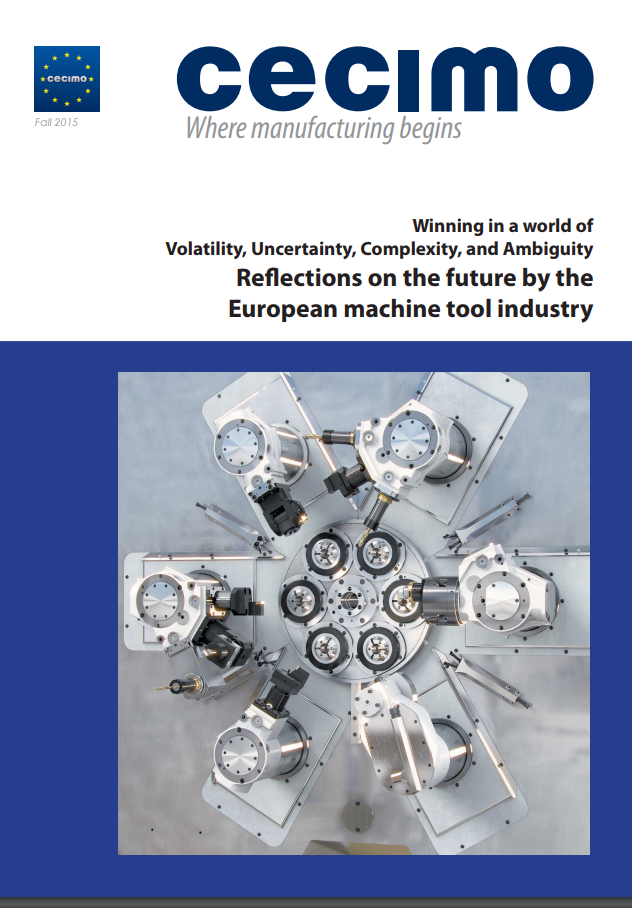CECIMO report

Foreword by CECIMO Director General
Manufacturing is a complex and challenging business. Many manufacturers are confronted with volatilities, uncertainties, complexities and ambiguities (VUCA) in today’s global business environment. In the past, challenges could take months to become real obstacles. Barriers can now arise suddenly, without any warning.
In a VUCA world, firms can go rapidly from the dominant position to bankruptcy. In the advanced manufacturing industry, much of the uncertainty is driven by financial instability, supply chain interruptions, geopolitical disputes, regulatory hurdles, changing customer needs and the pace of technological innovation. These can put the competitiveness of well-established industrial players at risk and bring them to put in question their business model.
Nowadays, companies have to operate in a world where VUCA is part of their daily business. They have to develop adaptable, flexible and innovative approaches, and retain a competitive edge in an increasingly globalized marketplace. This complex world, in constant change, also brings serious opportunities for those who are agile, innovation-driven and collaborative. It is definitely the time to steer towards a new type of planning and strategy which allows machine tool (MT) manufacturers to cope with challenging situations and tap into opportunities.
For this reason, “Winning in a world of VUCA” was chosen as the strategic theme of the CECIMO 2015 Spring Meetings held in Bordeaux, France. During these meetings, the risks specific to MT businesses were explored, and management and planning approaches that can help the sector navigate the new global business landscape were also discussed. We have concluded that to cope with VUCA, MT companies should be aware of risks and develop a management approach that handles uncertainty. They must make the right investment in terms of financial resources, organizational setup and information. It also clearly came out that the current challenges are too complex for individual actors to tackle on their own. Therefore, businesses rely on collaborative structures, such as industry associations, to help monitor and gather market intelligence, driving capacity enhancement, reaching out to global markets, embracing new technologies and business models and raising new skills. Based on the discussions during the last CECIMO Meetings, this publication provides a snapshot of the main challenges and paths for action identified by CECIMO Member National Associations and delegates.
Filip Geerts
Director General
